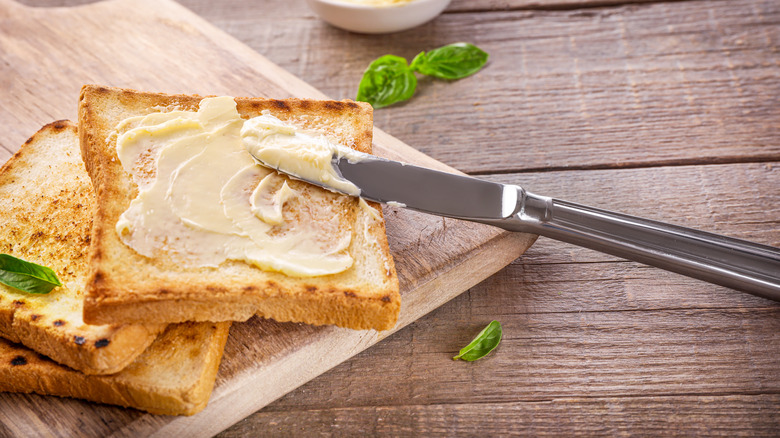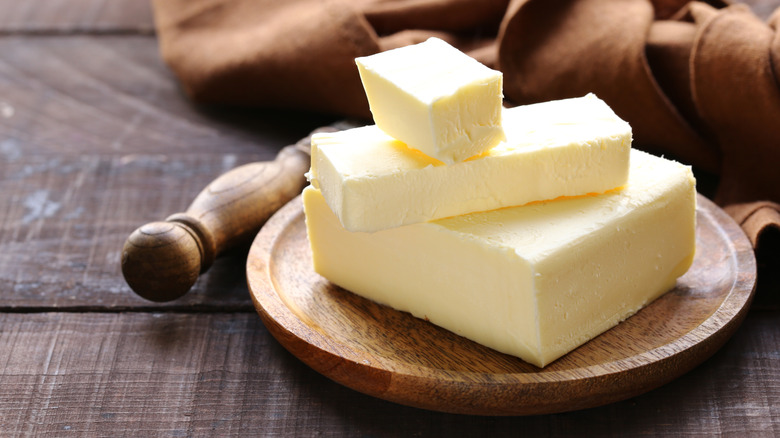Margarine Versus Butter: Which One Is Better For You?
It can be hard to tell the difference between margarine and butter by looks alone. Both come in various forms, have a light yellow color, and have a similar flavor. However, there are some important differences between the two. Margarine is a butter substitute that is usually made with oils and emulsifiers (via Eat This, Not That!). It is typically dairy-free but not always, so it is important to check the ingredients if you are sensitive to dairy products.
"Margarine has less cholesterol and saturated fat than butter, but a higher percentage of polyunsaturated and monounsaturated fats," said Claudia Sidoti, head chef of Hello Fresh. Polyunsaturated and monounsaturated fats are both healthy kinds of fat that are present in things like olive oil and vegetable oil. However, some margarine products contain trans fats, which can raise bad cholesterol levels and increase your risk of cardiovascular disease, heart attack, and stroke. Avoid margarine that contains trans fats.
When to choose butter over margarine
Although margarine is lower in cholesterol than butter, it's not always the better choice. According to Medical News Today, neither is a perfect option for everyone. Butter is higher in saturated fat than margarine, but that fat can make you feel more full after eating. Saturated fat is also better for you than trans fat. Butter is also better for baking than margarine.
"Margarine does not contain cholesterol because it is not derived from any animal product, so for those watching their cholesterol, margarine may be recommended. There are healthier versions of margarine popping up continuously. However, for those seeking a more natural fat spread or fat for baking, butter holds that title," Maryann Walsh MFN, RD, CDE, told Eat This, Not That!. If you are unsure which option is best for you, it's best to speak to your doctor. They can go over your health needs and dietary choices to determine whether it's fine to use real butter or opt for a margarine spread.


